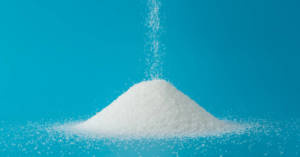 Sugar, that sweet, crystalline white carbohydrate that is essential to our bodies regular function, but also highly detrimental to our health if consumed in excess or in its refined state.
Sugar, that sweet, crystalline white carbohydrate that is essential to our bodies regular function, but also highly detrimental to our health if consumed in excess or in its refined state.
In normal energy production processes, the human body uses carbohydrates, sugars, and starches, to fuel normal metabolic processes on a cellular level.
However, intake of highly processed and refined sugars has been linked to increased risk of developing adverse health conditions. Refined sugar usually comes from sugar cane or sugar beets that are processed into a form known as sucrose, a combination of glucose and fructose.
Refined sugars are often used as sweeteners and are added to virtually all packaged food. Excess sugar is also linked to chronic inflammation and indirectly to certain cancer types due to weight gain and obesity.
Are all sugars bad?
All sugar is not bad, in fact, everycell in our body relies on blood sugar (glucose) for normal function. However, refined and processed sugars and other carbohydrates can cause an abnormal spike in blood sugar levels.
This spike in blood sugar forces insulin hormones to work harder to distribute this excess glucose to the cells of the body, eventually resulting in insulin insensitivity or type 2 diabetes.
What are Refined Sugars?
These refined sugars are associated with unhealthy levels of fat in the blood. This excess fat in the blood, in the form of triglycerides and “bad” cholesterol (LDL) can increase the risk of developing heart disease and other health deficits.
Major Risks Associated With Refined Sugars
Consumption of refinedsugars have been linked to conditions such as higher blood pressure, inflammation, fatty liver, and diabetes to name a few. Studies have shown that the increased calories from sugar cause an increase in fat in the body. This excess fat not only affects our appearance, but also our internal organs such as heart, liver and even brain.
Sugar-Based Diet
On the average American’s diet, the majority of sugar we consume comes from beverages such as juices, sodas, and sports or energy drinks. Other frequent sources of sugar consumption include dairy products, cookies/cakes, and most processed foods.
Even consumer goods you would not think contained sugar often do, such as soup, bread and even meats. Additionally, because sugar products are added to everyday consumer goods to increase shelf life, the majority of Americans consume over 80 grams (almost 20 teaspoons) of sugar daily on average. Those additional 80 grams daily amounts to an extra 66 pounds of weight yearly.
What to Avoid
Paying attention to product labels can help you to avoid products with added sugar. Common added refined sugars include: cornsweetener, corn syrup, high fructose corn syrup, juice concentrates and sugar molecules that end in “ose” such as dextrose, fructose, glucose, lactose, maltose, and sucrose.
How Much Is Too Much
While there is no recommended dietary allowance (RDA) for sugar set by The Institute of Medicine, the American Heart Association recommends less than 36 grams (9 teaspoons) of sugar daily. That translates to only consuming as much sugar that is contained in a 12 ounce can of soda daily.

Dr. Kevin Kinney, board certified and licensed Chiropractic Physician featured on INSIDER.com, TheTodayShow.com & BlackDoctorsMatter.org. Connect with Dr. Kev at drkevinkinney.com or @DrDuval904









